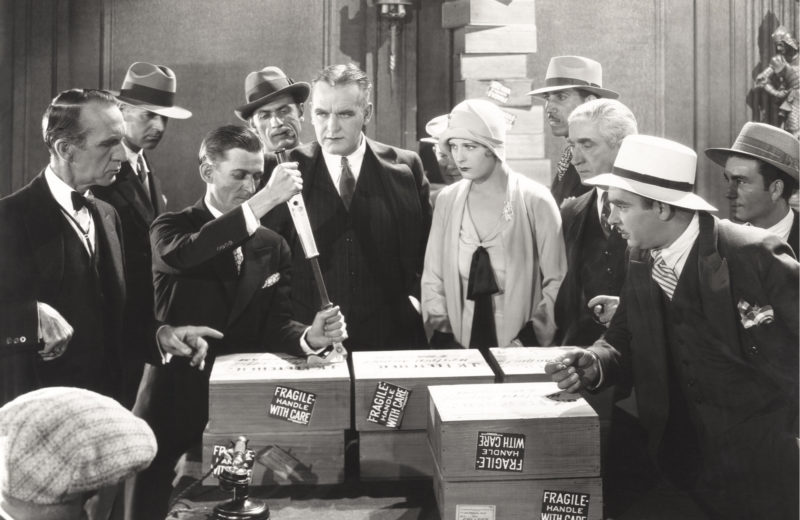Bootleggers, Baptists, and Banking

In 1983, economist Bruce Yandle published an influential article on bootleggers and Baptists. Drawing from the Prohibition era, Yandle explained how regulations are oftentimes passed into law on the backs of ardent support from an unlikely alliance of interest groups with divergent motives – those who support them because they benefit their own financial self-interest (e.g., bootleggers whos supported Prohibition because it allowed them to enrich themselves in the black market) and those who support them for ostensibly moral reasons (e.g., Baptists and other teetotalers who supported abstinence from alcohol). As Yandle observed, coalitions of opposing interest groups who are able to set aside their differences to unite behind a common legislative objective can be incredibly successful in getting their desired regulations passed into law.
There are many examples of Yandle’s “bootleggers and Baptists” today. But one of the most interesting today comes from the world of banking.
Recently, big tech companies have aggressively tried to gain a foothold in the banking industry. Last year, Facebook CEO Mark Zuckerburg announced his plans to launch a cryptocurrency, Libra. Google recently announced its partnership with Citigroup to offer checking accounts. Uber has begun offering debit accounts. Amazon introduced Amazon Bank and began offering small-business loans. Apple has already made waves in the payment industry with Apple Pay. It also plans to offer a variety of other financial products.
Of course, not everyone is thrilled about big tech’s ambitious foray into banking. Over the past few months, there has been a wave of bipartisan legislative proposals to prevent big tech firms from offering financial products. Support for these tighter regulations comes from two unlikely bedfellows.
The first are the anti-big-tech ideologues. This group consists of bipartisan factions ranging from progressive icons like Rep. Alexandra Ocasio-Cortez (D-New York) and Sen. Sherrod Brown (D-Ohio) to right-wing populists like Sen. Josh Hawley (R-Missouri) and Fox News host Tucker Carlson.
Their fears are essentially twofold. First, they fear that big tech’s foray into banking represents yet another dangerous step towards their “hostile takeover” of the economy. Allowing big tech to enter banking, the argument goes, would drive community banks and other small-scale financial-service providers out of the market. This would allow tech giants to further consolidate their already enormous market power, pushing them even closer to monopoly status. Second, it’d further erode digital privacy by giving tech giants even greater access to even more personal data on consumer finances, taking them one step closer to reaching the much-feared Skynet status.
At the National Conservatism Conference last summer, Carlson argued that “the main threat to your [freedom] does not come from government anymore” but from the private sector in the form of big tech companies like Google and Facebook.
The second group is the bankers. Bank lobbyists have long complained that tech firms have been given an unfair advantage over banks. In particular, they argue that tech firms have exploited regulatory loopholes that don’t require them to apply for a standard banking charter and don’t subject them to the more rigorous regulations that apply to traditional banks. “They’re not doing anything innovative by skirting the regulations that [banks] have to abide by,” said Paul Merski, chief economist of the Independent Community Bankers.
The banking lobby’s push to restrict big tech’s entry into banking has already received considerable bipartisan support in Congress. Last November, Sen. John Kennedy (R-Louisiana) and Rep. Chuy Garcia (D-Illinois) introduced the Keep Big Tech Out of Finance Act, which would prohibit Facebook and other big tech firms from creating their own digital currencies. The bill was deliberately introduced on the 20th anniversary of the Gramm-Leach-Bliley Act.
“I think members of Congress on both sides of the aisle have serious concerns about the entry of big tech into banking and financial services,” Garcia said. “We’re drawing a clear line between banking and commerce by clarifying the extent to which tech can be involved in financial activity.”
Although they haven’t entirely prevented nonbanks from offering an array of innovative financial products, this coalition of bankers and big tech critics – our proverbial bootleggers and Baptists, respectively – has largely succeeded in thwarting tech companies in their effort to become full-fledged banks. Yet, despite their public proclamations that these higher barriers to entry into banking are essential for protecting consumers, there’s little to no evidence that banks are engaging in these anti-big-tech lobbying efforts out of the kindness of their hearts rather than their own financial self-interest.
Contrary to what these modern-day bootleggers and Baptists argue, allowing more entrants into financial services is not inherently risky. And, to the extent that it exposes some consumers to more risk, it does so because those consumers prefer riskier options to the available alternatives.
Competition and innovation benefit consumers. At a time when expanding access to financial services has become a priority, suppressing innovation from its most likely sources in the tech sector is simply a recipe for disappointment. As Aaron Klein of Brookings and Brian Knight of Mercatus have noted, “Trying to shoehorn the new Fintech world into the old regulatory system risks denying the benefits of competition and innovation to millions of Americans.”
Financial inclusion has skyrocketed around the world thanks in large part to relaxing outmoded regulations to give tech companies and other non-bank entities greater scope to find innovative solutions for reaching the poor and unbanked. There is no reason regulators should let banking lobbyists and anti-tech advocacy groups – our modern day bootleggers and Baptists – prevent Americans from reaping the benefits of financial innovations. Prohibition of alcohol proved to be a disastrously bad idea. Prohibiting competition in banking is unlikely to fare any better.









